|
|
Abstracts
Keynote speeches
Open for engagement: GLAM audiences and digital participation
Ridge, Mia
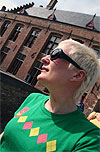
Audience participation with digital collections offers exciting new forms of engagement with galleries,
museums, libraries and archives (GLAM). Crowdsourcing, as a specialised form of audience participation,
can directly address some of the most important gaps in the public offerings of collecting institutions.
Crowdsourcing is user participation designed especially so that everyone benefits: the general public can
help make GLAM content discoverable by other members of the public, external experts can share their knowledge,
and collections gain new relevance for contemporary audiences. Online projects can take advantage of decades of
learning about public participation in cultural venues while generating participation at massive scale without the
constraints imposed by physical venues.
This presentation will share some of the most exciting international examples of user engagement with the
collections of museums, libraries and archives. It will present lessons about the technical and organisational
contexts that helped them work, and summarise best practice in design for online participation.
The finest digital drawing room in all Europe: how can we build a digital public space?
Thompson, Bill

In this talk he will look at the challenges that face us in the age of electronics as the digital
culture comes to dominate and ask how we can ensure that the analogue past remains part of the cultural
furniture in the digital public space
- an online Piazza San Marco where we can all express ourselves.
Plenary Talks
Europeana - An Open Philosophy
Cousins, Jill

Banging the drum of open source, open data while trying to maintain a Europe wide network of centuries
old institutions who have treasures to protect is not without its challenges. Achieving the push-pull,
shove-persuade balance can be a little fraught. This talk will try to explain the reasons Europeana
considers such a philosophy integral to its strategy, with an overview of the steps required to
follow this hedge-less road.
Europeana Innovation and Community Building
Kaiser, Max,
Oomen, Johan
This plenary session aims at identifying and discussing challenges and opportunities for
collaboration in building a more open, smart and connected cultural heritage domain. The
session will start with a brief introduction of the 'Innovation' work package of the new
'Europeana v2.0' project. The chairs of the previous conference sessions
will report on main issues they have identified during the two conference days. The audience will
actively participate in the discussion by working in break-out groups. Each group will create
a poster that discusses possible solutions for the issue at hand. After completing the poster, participants are
invited to vote for their favourite proposals from other groups.
Europeana, Innovation and Cultural Content online - where do we stand, challenges and opportunities
Marsella, Marco

The speech will outline achievements, challenges and opportunities on innovation in ICT for digital culture.
Session Chairs
HandsOn Activity: Exploring Visualization Tools
Siebinga, Sjoerd

During the session different aspects of the relation between visualization of information and the ability of users
to make sense of large amounts of information will be presented. The speakers come from different research fields
and different Europeana related EU funded projects.
In the hands-on-activity at the end of the session, the participants will be split up in small groups to use
a variety of visualization tools to see how they aid contextualization and understanding of information. Using play-full
discovery based on a small set of tasks, the participants will be able to see the stories behind the metadata will come
alive. The session will be closed by short reports from each group to describe what where the pros and cons of each
approach and how these can formulated into requirements for Europeana's aim to make the rich European diversity of
Cultural Heritage available to the wider public.
Speakers
Choosing the Right W3C Standard
Archer, Phil

There is now a wide choice in methods that publishers can use to embed metadata in their HTML documents:
microformats, microdata, HTML profiles and RDFa. Microdata gained a lot of attention recently with the launch
of schema.org, an initiative of the three major search engines. When are these technologies appropriate? What
are the relative strengths and weaknesses? Do the benefits outweigh the costs for any of them? And when is it
better to publish the metadata separately? Do not expect detailed answers in a lightning talk, but you can expect an
overview of the landscape that can help publishers ask the right questions.
GLAM Wiki - a year in the UK. Making GLAM information available outside and inside cultural institutions
Bamkin, Roger

There have been a number of GLAM Wiki events in the UK in the last twelve months. 100 new articles
were created at the British Museum and British Library. Leading UK institutions are queuing to
work with Wikipedia and we have started work with several. Editathons, backstage passes and
wikipedians in residence are encouraging a change of direction for museums. However the habit
of clutching at copyright is difficult to break. Collaboration between Wikipedia and Derby
Museums illustrated how this can start to happen with a smaller organisation. This collaboration
which is still on-going has resulted in the use of QR codes that allows user generated content
to be accessed directly to visitors to cultural institutions. Recent improvements to basic QR code
technology has allowed QRpedia codes that can re read in many different languages
without the use of customised apps.
Free Software and Open Formats: virtual immortality and independence for digital archives
Bubestinger, Peter
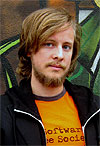
The creation and sustainability of digital content heavily depends on the applications and data formats
involved in its life cycle. Free Software licenses and Open Formats give archives the control over their
workflow environment and content - and enables them to operate vendor-independent and without artificial
restrictions.
This talk will give insights about the professionalism and maturity of Free Software and its practical usage
in digital audio/video archives.
Open Software: For the Public Good
Coar, Ken

Open software is not just about the result (the software).
It is also about the intended audience and purpose, and how the results are achieved.
When monetary profit is among the goals, figuring out where open software can fit is often difficult.
When sharing without regard for profit is itself the primary goal, the role of open software is generally
less controversial. It is peculiarly well-suited to such endeavours.
The Europeana Project is virtually an ideal candidate for applying and benefiting from open software and
its concomitant processes such as transparent development, distributed collaboration, and consensus-building.
Catalyzing Cooperation with an Open Source Time-Line
de Jong, Gerald

Delving was established in the summer of 2010 to offer some needed high-quality solutions to cultural heritage
data providers of all sizes, and we used the open source Europeana code base as a solid starting point. We
have established working relationships with institutions in several countries, including major projects 'Kulturnett'
in Norway and 'DiMCoN' in the Netherlands, with a focus on content aggregators. We quickly discovered that everyone
wanted essentially the same thing but no individual institutions had the resources to have it built. Our approach
is to define a time-line describing future feature/functionality developments and roll-outs, invite clients to play
a role in supporting specific developments and influencing our path. Our clients know that our work is open source,
implying that they inherit a great deal of technology, but also that new features they have us build are inherently
shared with the community, and they have the important added 'insurance policy' that there is no vendor lock-in.
Current developments are directed toward implementing User-Generated-Context system to finally start
involving citizens in the process of creating, refining, and contextualizing existing cultural heritage
metadata and objects. Again, this is a nearly universal need that many institutions have, but nobody can
build it well by themselves, so Delving plays the role of 'catalyst' by providing a focal point and pooling
the resources of different clients so that the entire community profits from the concentration of effort and
expertise that we can offer. Without the open source approach these things would never happen,
because each individual project would reinvent a differently-shaped wheel.
Users, aggregators and Europeana drive MINT development
Drosopoulos, Athanasios (Nasos)
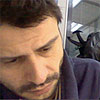
MINT is a web-based platform designed and developed to facilitate aggregation initiatives for
cultural heritage content and metadata in Europe. It is employed from the first steps of such workflows,
corresponding to the ingestion, mapping and aggregation of metadata records, and proceeds to implement a
variety of remediation approaches for the resulting repository. It was introduced in the ATHENA project, the
largest contributor of museum content to Europeana, to aggregate in LIDO over 5 million items from 135 organizations.
The EUscreen project follows the same workflow for Europeana, while also providing a portal for Europe's television
heritage where both the video content and metadata records are offered to users. Similarly, the CARARE, Judaica
Europeana, ECLAP, DCA and Linked Heritage projects utilize MINT to implement aggregation and remediation requirements
for their specific domain and tasks. The tool is also supporting the presentation and revision of the LIDO schema and
the prototyping of the Europeana Data Model harvesting XSD and RDFS ontology.
Europeana's evolution and respective requirements, different aggregator needs and strategies and, a growing user base
are highly impacting the platform's development decisions and paths. Naturally, collaborations with other design and
development teams are crucial, ranging from the analysis and requirements phase, to interfacing and integrating with
other software and repositories. The talk will highlight some of the challenges and decisions that have guided MINT's
development in this complex environment.
Crowdsourcing memories of the First World War in Europe
Edwards, Alun

For Europeana, a team from the University of Oxford trained librarians and archivists
in Germany (managed by the DNB) to run public participation days to gather everyday objects
from the First World War. The road trip to these digitisation days was gruelling - the results
were staggering. Equally impressive have been the online contributions - the main collection point
for this UGC (user-generated content), the website for the project is
http://www.europeana1914-1918.eu/.
This was based on work funded by JISC in the UK in a pilot project called 'The Great War Archive'
http://www.oucs.ox.ac.uk/ww1lit/gwa/ which also uses Flickr as
a collection and engagement mechanism.
The House of Alijn and crowdsourcing: a natural relation
Eloy, Sarah
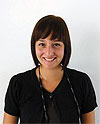
The museum The House of Alijn shows the culture of everyday life in the 20th century through objects, photo's,
home movies and sound-recordings. One of the museum's central points of interest is commitment to and involvement
with the public, offline as well as online. Our message is: together with you we write a timeless story about
things that (n)ever pass. The public - a 'heritage community' - plays a crucial part in the making of collections,
presentations and communication. The online crowdsourcingsproject is a logical continuation of this workflow. First
experiences learn that this online sequel requires at least the same investment in time, resources and people as
the offline connection with the public. As a museum with physical objects and exhibitions, we choose a durable
approach that doesn't
just float an a hype.
Where is the Music in Semantics? Why the Oslo Center for Popular Music Runs Semantic Technology
Engels, Robert

Oslo Municipality currently establishes a state-of-the-art center for Norwegian popular music. This includes the
Popsenter as a digital experience center where the public can experience, learn and participate in the world
of (Norwegian) music through exhibitions, do-it-yourself and research stations.
In order to be able to serve a rich experience to visitors while guaranteeing a maintainable infrastructure,
the Popsenter digital infrastructure builds entirely upon the use of open-source semantic technology. This talk
describes Popsenter, its technical infrastructure and some of the choices that had to be made while working
with semantic technology in the two year period towards the finalization of the technical infrastructure.
CARARE: Archaeology and the EDM
Fernie, Kate

In the CARARE project we are aggregating metadata from a group of partners with rich knowledge of Europe's
archaeological and architectural heritage and who between them hold a series of information resources which
describe some large and complex monuments, associated finds, images, 3D models, plans, maps and histories.
Our challenge is to bring this diverse information together and present it to Europeana in a Europeana friendly format -
the EDM - while maintaining the quality and key information for our domain. This lightening talk will look at how we are
using the CARARE data model to mediate between data from our domain and the EDM, how well the data fits the current
implementation of EDM, where it doesn't and what we're doing about this,
and managing 3D object metadata and geo-data from our domain.
Information Extraction in Metadata: Challenges and Tools
Freire, Nuno

Metadata is mainly created to fulfil the information requirements within its original context. When
metadata is used outside its original context, as in Europeana or other aggregators, much interest
has arisen in exploring these information resources to support new services and functionality. Metadata
records often contain unstructured information in natural language texts, which may not be immediately
available for machine processing, without first being transformed into a structured form. This kind of
processing is provided by information extraction tools. This presentation will present the particular
challenges of performing information extraction in metadata, some typical information extraction tasks, and some
of the available tools.
Improving the German Digital Library - Data enrichment with culturgraph.org
Geipel, Markus M.

The German Digital Library (DDB) is intended to give access to all digital cultural and academic content provided by German culture and research institutions. These institutions include a large variety of organization (libraries, museums, archives, universities etc.) and a considerable range of media types (books, records, music, films, 3D objects). Apart from being a portal for culture in Germany, the DDB acts as a national aggregator for Europeana.
The German National Library (DNB) coordinates the technical work of the DDB Competence Network which is composed of selected cultural heritage institutions and is commissioned to assist the development and pilot phase of the DDB. As such, we support and foster innovative technologies comprising, for instance, data enrichment, automatic text analysis, mobile applications, integration of VREs and social networks. While still being in its infancy (first release end of 2011), one major challenge is already discernable: To enable useful retrieval and discovery tools for both the DDB and the Europeana frontend the collected metadata has to be contextualized, interlinked, and interoperable. However, by simply harvesting and merging different asset catalogues the data still remains heterogeneous and unconnected. In the era of the WWW and Linked Data metadata needs to be compatible with standards such as RDF, and it needs to be linked to other, related data sources.
To address this challenge we created the platform culturegraph.org. Its objective is to connect the major German library catalogues and augment them with links to authority data, geographical databases such as Geonames.org, and encyclopedia databases such as Wikipedia. In the long run we hope to extend culturegraph.org to become a linked open data melting pot that will harbor a variety of innovation projects in the DDB context and its associated partners. As such culturegraph.org would serve as the technical infrastructure supporting the innovation management mandate of the German National Library with respect to the DDB. This innovation process aims at improving not only the user experience of the DDB, but also the data quality, which will propagate directly to Europeana.
Multilingual Access to Europeana - the User Perspective
Gäde, Maria
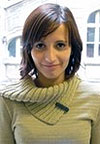
Europeana intents to provide multilingual access to cultural and scientific heritage material.
Through the provision of multilingual access capabilities all content can be accessed, irrespective
of users' native languages or the language of the resources. Understanding and evaluating user behavior
is crucial for system design, meeting user needs and expectations. Through the analysis of log files we
can study the Europeana users and especially the actual usage of language sensitive features. This talk
presents the Europeana Clickstream Logger, which logs and gathers extended information on user behavior
with a special focus on language sensitive aspects. First examples of the data collection possibilities
will be demonstrated.
The opportunities of the Europeana Data Model
Gradmann, Stefan
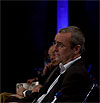
The talk will highlight the main rationale behind the Europeana Data Model (EDM),
illustrating the requirements collected from stakeholders and users in several years of
collaboration, and the way in which these requirements have led to the Model. It will be stressed
that the Model is intended to give a more active and central role to the contributors in fulfilling
the very ambitious goals of Europeana and at same time it will be made evident that the EDM is a vital
step for making Europeana part of the Linked Open Data paradigm.
Europeana Remix: An interactive experience around the story of an unlikely friendship during the First World War
Haskiya, David

Europeana Remix is an interactive platform based on the film 'Otto & Bernard'. This short film was produced for the
project
Europeana Erster Weltkrieg, encouraging families to share photos, letters and memorabilia of the First World War.
Now the
film forms the basis of the Remix initiative, combining leading edge technology (Popcorn.js, the HTML5 video framework)
and
a variety of resources from Europeana and across the web.
Europeana's work on the First World War sets out to discover untold stories, to share them across borders, and to invite
responses from around Europe as we approach the centenary of the conflict. We encourage people to share ideas, stories,
comments and links on this platform.
With the Popcorn.js and HTML5 video technology on board, Remix is at the vanguard of using audiovisual heritage in engaging
people with their history. Not only does it help to tell a story, but also its interactive features put the user in control
of what's interesting to them, what they want to see and how they want to contribute.
Europeana Remix has been developed in partnership with the Knowledgeland Foundation, Three Eyed Labs/ Brian Chirls,
and
BigUp/ Harold van Velsen.
David Haskiya will also participate in the Hackathon where he will introduce the Europeana Search API together with Milena
Popova.
Aggregating cultural heritage collections using automatically generated topic hierarchies
Hall, Mark M.

Over the past few years large-scale digitisation projects and aggregation projects such as Europeana have been very successful and as a consequence vast collections of digital cultural heritage data have become publicly available. The problem is that simply making the data available does not mean that it is accessible, especially when the potential user does not have a clear idea what they want to see and simply wants to browse around. Ontologies and thesauri can be helpful in this regard, providing a structure within which the user can navigate, however different collections use different ontologies and these are often not compatible, making it impossible to use them to create an integrated browsing experience. Manual integration is sometimes possible, however it is time-intensive and requires constant maintenance. This talk presents an alternative approach based on automatically generating topic hierarchies that the users can use to navigate the aggregated collections. The topics are derived from the individual items in the aggregated collection and are thus guaranteed to describe all the data available in the collections
in a consistent manner, irrespective of the sources they were aggregated from. The topics can then be arranged into a topic hierarchy that is either derived purely from the data or by automatically aligning the topics to an existing ontology or thesaurus. In both cases the user is presented with a fully integrated browsing experience over the aggregated, heterogeneous collection. The process is fully automatic and can thus be applied to large-scale collections without requiring large amounts of manual work.
Data constraints and quality in a linked open data world
Hermans, Paul

This talk will focus on the data quality approaches taken in the belgian ErfgoedPlus (HeritagePlus)
project and the lessons learned. Speaker will also elaborate on the latest developments and
toolsets to be used related to data quality in semantic web applications.
Developing Innovative, Usable and Stable User Interfaces using Open Source Software
Hesselmann, Tobias
Developing cutting-edge software within bigger projects, such as EuropeanaConnect, is an ambitious task. On the one hand,
software should be innovative and advance the current state of the art. On the other hand, software needs to be solid
and should reach production quality within the timeframe of the project. Finding appropriate methods to deal with
these opposing goals can be considered one of the biggest challenges in software development.
In this talk, I will describe how we approached this challenge in the development of the Europeana mobile client.
We employed a 2-stage process: The OFFIS Institute for Information Technology experimented with innovative and novel user interfaces for accessing Europeana on mobile devices, while the Europeana Office contributed advice for moving research into practice using state-of-the art open source tools and frameworks. Using this process, we created a set of fully functional demonstrators that now act as a base for the productive Europeana mobile client.
User-generated video annotations on the Web of Data
Hildebrand, Michiel

In the audiovisual domain tagging games are explored as a method to collect user-generated metadata. For example, the Netherlands Institute for Sound and Vision deployed the video labelling game Waisda? to collect user tags for videos from their collection. These tags are potentially useful to improve the access to the content within the videos. However, the uncontrolled and often incomplete tags allow for multiple interpretations, preventing long term access. We present a semi-automatic process to define the interpretation of the tags by linking them to concepts from the Linked Open Data cloud. More specifically, we show how existing web services can be used to find a number of candidate concepts, and how human users can select the most appropriate concept from these suggestions in the context of the video. We present a prototype application that supports this process and discuss the results of a user
experiment where this application is used with different data sources.
data.europeana.eu
Isaac, Antoine

data.europeana.eu is an ongoing effort for making Europeana metadata available as Linked
Open Data on the Web. It allows others to access metadata collected from Europeana data providers
via standard Web technologies. The data are represented in the Europeana Data Model (EDM) and
the described resources are addressable and dereferencable by their URIs. Links between Europeana
resources and other resources in the Linked Data Web will enable the discovery of semantically related
resources. We developed an approach that allows selecting Europeana data providers and converts their
metadata to EDM, benefiting from Europeana efforts to link them to semantically related resources on
the Web. With that approach, we produced a first Linked Data version of Europeana and published the
resulting datasets on the Web. This presentation will be mostly based on a paper written for the Dublin
Core conference with Bernhard Haslhofer
from Vienna University and Cornell University.
Linked Data - Evolving the Web into a Global Data Space
Jentzsch, Anja
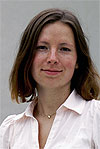
Linked Data technologies provide for setting links between records in distinct databases and thus to connect these databases
into a global data space. Over the last years, Linked Data technologies have been adopted by an increasing number of data
providers, including the US and UK governments as well as major players in the media and pharmaceutical industry, leading
to the creation of a global Web of Data.
In her talk, Anja Jentzsch will give an overview of the Web of Data as well as the architecture of Linked Data applications that work on top of this data space. Afterwards, she will present DBpedia, the Linked Data version of Wikipedia and one of the first Linked Data sets. She will close with an overview of the research challenges that the Linked Data community currently faces.
The Europeana Licensing Framework
Keller, Paul
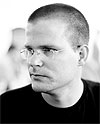
This presentation will provide an overview of the Europeana Licensing Framework that has been developed in the
context of the Europeana Connect project. The Europeana Licensing Framework structures the relationship between
Europeana, its data providers, users contributing content to Europeana and re-users of the data published by Europeana.
The Europeana licensing framework, which will be fully implemented between September 2011 and june 2012 plays an important
role in enabling the strategic ambitions of Europeana as laid out in the Europeana Strategic plan.
The Europeana licensing framework builds builds on top of open licenses and other legal tools developed by Creative
Commons. It strives to maximize reuse of the data aggregated by Europeana both by its existing data providers and
third parties that intend to develop products and services based on the data aggregated by Europeana. This objective
has led to the decision to allow reused of the data published by Europeana without any restrictions. On the other
hand the Europeana licensing framework contains numerous provisions that ensure that content held by the data providers
can only be re-used of the data providers give permission for such re-use or if the content is in the Public Domain.
Current development of UGC and the semantic web at The Swedish National Heritage Board
Lewin, Börje
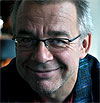
The Swedish National Heritage Board (SNHB) is considered to be a leading force in Sweden when
it comes to issues like the semantic web, social media, and more. This presentation will show how
is approaching the challenges ahead of user generated contents and crowd sourcing. A project for crowd
enrichment of data in professional systems is just starting up. Börje will also share some
ideas of ways forward for Europeana.
Digital Public Library of America Update
Marx, Maura
I will give a general update on DPLA activities and will specifically describe the outcome of the
Beta Sprint, an open public call for submissions of
demos, code and design ideas to help advance the DPLA.
Visual Analytics - Detect the Expected and Discover the Unexpected
Miksch, Silvia
Due to the proliferating capabilities to generate and collect vast amounts of data and information we face the challenge
that users and analysts get lost in irrelevant, or otherwise inappropriately processed or presented information. Visual
Analytics is an emerging research discipline developing methods and technology that make the best possible use of huge
information loads in a wide variety of applications. The basic idea is to appropriately combine the strengths of both,
computers' and humans' information processing capabilities. To make complex information structures more comprehensible,
facilitate new insights, and enable knowledge discovery, methods of visualization, intelligent data analysis, and mining
form a symbiosis with the human user via interactive visual interfaces.
Application scenarios that involve temporal properties are in the focus of our scientific interest. Time has a rich
inherent structure and distinct characteristics which increase its complexity dramatically. To account for that,
specialized Visual Analytics methods are needed to support analysis and visualization.
In this talk, I will illustrate the basic concepts of Visual Analytics, the interaction and exploration methods and
the users' roles which are needed to accomplish these concepts, and give various examples to illustrate what has been
achieved so far and show possible future directions and challenges.
Europeana and Open Source
Molendijk, Jan

Europeana embraces Open Source and Free Software, both by using Open Source software wherever possible and by offering the software developed in Europeana and the Europeana family of projects back to the community. This talk explores our experiences in this process and shows some of the results.
Culture on the go
Nicholas, David

Clearly mobile devices and smart phones are the platform of choice for many people seeking information on the
internet and this might be especially so in the case of Europeana, which has much to offer a very large
and strategic mobile user group - tourists. Of course young people too are big mobile users. We have been
monitoring and evaluating the use and users of Europeana by analysing the millions of digital footprints
they leave behind them when they use the service and for the purpose of the talk I shall be
concentrating purely on mobile users - the subject of a recent report of ours.
Open data for the cultural masses
Schreiber, Guus
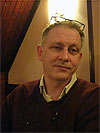
In this talk we discuss what a cultural-heritage institution needs to do to make its data available as Open Data. We show practical examples of using the Europeana Data Model. We also show how such data can be deployed,
for example to provide novel search and presentation facilities.
End-User Media Annotation with YUMA
Simon, Rainer

The practice of annotation has traditionally been playing a crucial role in the cultural heritage domain: on the one hand,
annotations enable scholars to share and exchange knowledge, and work collaboratively in the interpretation and analysis
of cultural heritage artefacts. On the other hand, annotations are a valuable addition to traditional metadata, which is
essential for organising and cataloguing, as well as for searching and retrieving of objects in cultural heritage
collections.
The YUMA Universal Media Annotator (YUMA) is an end-user annotation toolkit for different types of digital media content.
With YUMA, users create 'Post-It'-style free-text annotations that can pertain to the digital item as a whole, or to a
part of it. Additionally, a semi-automatic Semantic Tagging approach supports users in augmenting their annotations with
structured context information that can be used to enrich and complement traditional collection metadata. YUMA is
entirely browser based and supports annotation of images, digitised maps and, through prototype implementations,
audio and video.
The Changing Face of Citizen Science
Smith, Arfon

In July 2007 Galaxy Zoo was launched. 48 hours after launch the project website was receiving more than 70,000
classifications per hour. 4 years later the Zooniverse community has over 450,000 members who are engaged
with 'citizen science' projects in subject areas as diverse as solar physics, climate science and papyrology.
The Zooniverse has demonstrated that a large number of non-experts can provide rich datasets for academic research
and that the citizen science community can play an important role in modern research. In this talk I will review
the current state of citizen science and argue that if the citizen scientist is to continue to play an important
role in research then new approaches must be developed to
help partner automated methods with community classifiers.
europeana4D - exploring data in space and time
Stockmann, Ralf
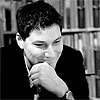
The amount of online data that supplies geo-spatial and temporal metadata has grown rapidly in recent years.
Search engines like Europeana, but also social networks like Twitter, Flickr, and YouTube are popular providers
of masses of data. The europeana 4D interface - e4D - enables comparative visualisation of multiple queries
and supports data annotated with time span data. We implemented our design in a prototype application in the
context of the European project EuropeanaConnect. It is based on a client-server architecture that charges the
client with the main functionality of the system. Researchers, data-journalists, and the broad public alike can
use this open source
framework to explore complex data - answering both time and space-related issues.
www.tinyurl.com/e4d-project
Implementing an Open Data programme within government: Top Down, Bottom Up and Middle Out
Stott, Andrew
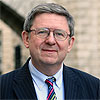
This talk will discuss key issues faced by teams working within government bodies and public sector
agencies to implement open data programmes and policies. It will examine how they can be addressed
and how other actors can help public servants in their task. It will be based on practical experience
from implementing data.gov.uk and the UK government
transparency programme in central and local government agencies.
Software Freedom and Access to Knowledge
Swartz, Aaron
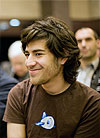
For years, libraries have depended on high-priced proprietary software to manage their collections and share
information about them with their patrons. But a new community of free software developers has sprung up to
build open source, free software versions of these tools. This exciting new community not only creates tools
that can save libraries money but can also join them to a free, open collection of knowledge that's being created
from sources across the globe.
National infrastructure and content aggregation in Norway
Urtegaard, Gunnar
During the last 2-3 years a national infrastructure for harvesting data from archives and museums have been
developed in Norway. This infrastructure is important for supplying data to Europeana as well as regional and
local institutions and partners. At the moment Norway is one of the major contributors of data in Europeana
(1.5 million objects).
This infrastructure also plays an important role in developing new services like location based services,
mobile services and user generated content. Is also serves as an important resource in our efforts of analysing
and improving metadata.
The presentation will address this work and future plans.
Panel Discussions
Panel Discussion Open Source
The panel will consist of all the speakers of the session. The topic of
the discussion will be how open source can ideally be implemented, managed,
supported and promoted in Europeana related projects and beyond. Each speaker
will have one minute to comment on the topic and then the audience will participate
in the discussion. A nice outcome of this discussion will be a list of suggestions
that Europeana and the related community can discuss and start applying new methods
that will improve the quality, the reliability, and the flexibility of the code at
a lower cost. It will be very interesting to listen to the speakers that have contributed
to a successful application in the area of open-source. It will also be very interesting to listen
to the people that are developing tools in Europeana related projects.
|






 The German Digital Library (DDB) is intended to give access to all digital cultural and academic content provided by German culture and research institutions. These institutions include a large variety of organization (libraries, museums, archives, universities etc.) and a considerable range of media types (books, records, music, films, 3D objects). Apart from being a portal for culture in Germany, the DDB acts as a national aggregator for Europeana.
The German National Library (DNB) coordinates the technical work of the DDB Competence Network which is composed of selected cultural heritage institutions and is commissioned to assist the development and pilot phase of the DDB. As such, we support and foster innovative technologies comprising, for instance, data enrichment, automatic text analysis, mobile applications, integration of VREs and social networks. While still being in its infancy (first release end of 2011), one major challenge is already discernable: To enable useful retrieval and discovery tools for both the DDB and the Europeana frontend the collected metadata has to be contextualized, interlinked, and interoperable. However, by simply harvesting and merging different asset catalogues the data still remains heterogeneous and unconnected. In the era of the WWW and Linked Data metadata needs to be compatible with standards such as RDF, and it needs to be linked to other, related data sources.
To address this challenge we created the platform culturegraph.org. Its objective is to connect the major German library catalogues and augment them with links to authority data, geographical databases such as Geonames.org, and encyclopedia databases such as Wikipedia. In the long run we hope to extend culturegraph.org to become a linked open data melting pot that will harbor a variety of innovation projects in the DDB context and its associated partners. As such culturegraph.org would serve as the technical infrastructure supporting the innovation management mandate of the German National Library with respect to the DDB. This innovation process aims at improving not only the user experience of the DDB, but also the data quality, which will propagate directly to Europeana.
The German Digital Library (DDB) is intended to give access to all digital cultural and academic content provided by German culture and research institutions. These institutions include a large variety of organization (libraries, museums, archives, universities etc.) and a considerable range of media types (books, records, music, films, 3D objects). Apart from being a portal for culture in Germany, the DDB acts as a national aggregator for Europeana.
The German National Library (DNB) coordinates the technical work of the DDB Competence Network which is composed of selected cultural heritage institutions and is commissioned to assist the development and pilot phase of the DDB. As such, we support and foster innovative technologies comprising, for instance, data enrichment, automatic text analysis, mobile applications, integration of VREs and social networks. While still being in its infancy (first release end of 2011), one major challenge is already discernable: To enable useful retrieval and discovery tools for both the DDB and the Europeana frontend the collected metadata has to be contextualized, interlinked, and interoperable. However, by simply harvesting and merging different asset catalogues the data still remains heterogeneous and unconnected. In the era of the WWW and Linked Data metadata needs to be compatible with standards such as RDF, and it needs to be linked to other, related data sources.
To address this challenge we created the platform culturegraph.org. Its objective is to connect the major German library catalogues and augment them with links to authority data, geographical databases such as Geonames.org, and encyclopedia databases such as Wikipedia. In the long run we hope to extend culturegraph.org to become a linked open data melting pot that will harbor a variety of innovation projects in the DDB context and its associated partners. As such culturegraph.org would serve as the technical infrastructure supporting the innovation management mandate of the German National Library with respect to the DDB. This innovation process aims at improving not only the user experience of the DDB, but also the data quality, which will propagate directly to Europeana.




 Audience participation with digital collections offers exciting new forms of engagement with galleries,
museums, libraries and archives (GLAM). Crowdsourcing, as a specialised form of audience participation,
can directly address some of the most important gaps in the public offerings of collecting institutions.
Crowdsourcing is user participation designed especially so that everyone benefits: the general public can
help make GLAM content discoverable by other members of the public, external experts can share their knowledge,
and collections gain new relevance for contemporary audiences. Online projects can take advantage of decades of
learning about public participation in cultural venues while generating participation at massive scale without the
constraints imposed by physical venues.
Audience participation with digital collections offers exciting new forms of engagement with galleries,
museums, libraries and archives (GLAM). Crowdsourcing, as a specialised form of audience participation,
can directly address some of the most important gaps in the public offerings of collecting institutions.
Crowdsourcing is user participation designed especially so that everyone benefits: the general public can
help make GLAM content discoverable by other members of the public, external experts can share their knowledge,
and collections gain new relevance for contemporary audiences. Online projects can take advantage of decades of
learning about public participation in cultural venues while generating participation at massive scale without the
constraints imposed by physical venues.
 In this talk he will look at the challenges that face us in the age of electronics as the digital
culture comes to dominate and ask how we can ensure that the analogue past remains part of the cultural
furniture in the digital public space
- an online Piazza San Marco where we can all express ourselves.
In this talk he will look at the challenges that face us in the age of electronics as the digital
culture comes to dominate and ask how we can ensure that the analogue past remains part of the cultural
furniture in the digital public space
- an online Piazza San Marco where we can all express ourselves.
 Banging the drum of open source, open data while trying to maintain a Europe wide network of centuries
old institutions who have treasures to protect is not without its challenges. Achieving the push-pull,
shove-persuade balance can be a little fraught. This talk will try to explain the reasons Europeana
considers such a philosophy integral to its strategy, with an overview of the steps required to
follow this hedge-less road.
Banging the drum of open source, open data while trying to maintain a Europe wide network of centuries
old institutions who have treasures to protect is not without its challenges. Achieving the push-pull,
shove-persuade balance can be a little fraught. This talk will try to explain the reasons Europeana
considers such a philosophy integral to its strategy, with an overview of the steps required to
follow this hedge-less road.
 The speech will outline achievements, challenges and opportunities on innovation in ICT for digital culture.
The speech will outline achievements, challenges and opportunities on innovation in ICT for digital culture.
 During the session different aspects of the relation between visualization of information and the ability of users
to make sense of large amounts of information will be presented. The speakers come from different research fields
and different Europeana related EU funded projects.
During the session different aspects of the relation between visualization of information and the ability of users
to make sense of large amounts of information will be presented. The speakers come from different research fields
and different Europeana related EU funded projects. There is now a wide choice in methods that publishers can use to embed metadata in their HTML documents:
microformats, microdata, HTML profiles and RDFa. Microdata gained a lot of attention recently with the launch
of schema.org, an initiative of the three major search engines. When are these technologies appropriate? What
are the relative strengths and weaknesses? Do the benefits outweigh the costs for any of them? And when is it
better to publish the metadata separately? Do not expect detailed answers in a lightning talk, but you can expect an
overview of the landscape that can help publishers ask the right questions.
There is now a wide choice in methods that publishers can use to embed metadata in their HTML documents:
microformats, microdata, HTML profiles and RDFa. Microdata gained a lot of attention recently with the launch
of schema.org, an initiative of the three major search engines. When are these technologies appropriate? What
are the relative strengths and weaknesses? Do the benefits outweigh the costs for any of them? And when is it
better to publish the metadata separately? Do not expect detailed answers in a lightning talk, but you can expect an
overview of the landscape that can help publishers ask the right questions.
 There have been a number of GLAM Wiki events in the UK in the last twelve months. 100 new articles
were created at the British Museum and British Library. Leading UK institutions are queuing to
work with Wikipedia and we have started work with several. Editathons, backstage passes and
wikipedians in residence are encouraging a change of direction for museums. However the habit
of clutching at copyright is difficult to break. Collaboration between Wikipedia and Derby
Museums illustrated how this can start to happen with a smaller organisation. This collaboration
which is still on-going has resulted in the use of QR codes that allows user generated content
to be accessed directly to visitors to cultural institutions. Recent improvements to basic QR code
technology has allowed QRpedia codes that can re read in many different languages
without the use of customised apps.
There have been a number of GLAM Wiki events in the UK in the last twelve months. 100 new articles
were created at the British Museum and British Library. Leading UK institutions are queuing to
work with Wikipedia and we have started work with several. Editathons, backstage passes and
wikipedians in residence are encouraging a change of direction for museums. However the habit
of clutching at copyright is difficult to break. Collaboration between Wikipedia and Derby
Museums illustrated how this can start to happen with a smaller organisation. This collaboration
which is still on-going has resulted in the use of QR codes that allows user generated content
to be accessed directly to visitors to cultural institutions. Recent improvements to basic QR code
technology has allowed QRpedia codes that can re read in many different languages
without the use of customised apps.
 The creation and sustainability of digital content heavily depends on the applications and data formats
involved in its life cycle. Free Software licenses and Open Formats give archives the control over their
workflow environment and content - and enables them to operate vendor-independent and without artificial
restrictions.
This talk will give insights about the professionalism and maturity of Free Software and its practical usage
in digital audio/video archives.
The creation and sustainability of digital content heavily depends on the applications and data formats
involved in its life cycle. Free Software licenses and Open Formats give archives the control over their
workflow environment and content - and enables them to operate vendor-independent and without artificial
restrictions.
This talk will give insights about the professionalism and maturity of Free Software and its practical usage
in digital audio/video archives.
 Open software is not just about the result (the software).
It is also about the intended audience and purpose, and how the results are achieved.
When monetary profit is among the goals, figuring out where open software can fit is often difficult.
When sharing without regard for profit is itself the primary goal, the role of open software is generally
less controversial. It is peculiarly well-suited to such endeavours.
The Europeana Project is virtually an ideal candidate for applying and benefiting from open software and
its concomitant processes such as transparent development, distributed collaboration, and consensus-building.
Open software is not just about the result (the software).
It is also about the intended audience and purpose, and how the results are achieved.
When monetary profit is among the goals, figuring out where open software can fit is often difficult.
When sharing without regard for profit is itself the primary goal, the role of open software is generally
less controversial. It is peculiarly well-suited to such endeavours.
The Europeana Project is virtually an ideal candidate for applying and benefiting from open software and
its concomitant processes such as transparent development, distributed collaboration, and consensus-building.
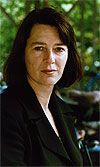 Abstract coming soon
Abstract coming soon
 Delving was established in the summer of 2010 to offer some needed high-quality solutions to cultural heritage
data providers of all sizes, and we used the open source Europeana code base as a solid starting point. We
have established working relationships with institutions in several countries, including major projects 'Kulturnett'
in Norway and 'DiMCoN' in the Netherlands, with a focus on content aggregators. We quickly discovered that everyone
wanted essentially the same thing but no individual institutions had the resources to have it built. Our approach
is to define a time-line describing future feature/functionality developments and roll-outs, invite clients to play
a role in supporting specific developments and influencing our path. Our clients know that our work is open source,
implying that they inherit a great deal of technology, but also that new features they have us build are inherently
shared with the community, and they have the important added 'insurance policy' that there is no vendor lock-in.
Delving was established in the summer of 2010 to offer some needed high-quality solutions to cultural heritage
data providers of all sizes, and we used the open source Europeana code base as a solid starting point. We
have established working relationships with institutions in several countries, including major projects 'Kulturnett'
in Norway and 'DiMCoN' in the Netherlands, with a focus on content aggregators. We quickly discovered that everyone
wanted essentially the same thing but no individual institutions had the resources to have it built. Our approach
is to define a time-line describing future feature/functionality developments and roll-outs, invite clients to play
a role in supporting specific developments and influencing our path. Our clients know that our work is open source,
implying that they inherit a great deal of technology, but also that new features they have us build are inherently
shared with the community, and they have the important added 'insurance policy' that there is no vendor lock-in.
 MINT is a web-based platform designed and developed to facilitate aggregation initiatives for
cultural heritage content and metadata in Europe. It is employed from the first steps of such workflows,
corresponding to the ingestion, mapping and aggregation of metadata records, and proceeds to implement a
variety of remediation approaches for the resulting repository. It was introduced in the ATHENA project, the
largest contributor of museum content to Europeana, to aggregate in LIDO over 5 million items from 135 organizations.
The EUscreen project follows the same workflow for Europeana, while also providing a portal for Europe's television
heritage where both the video content and metadata records are offered to users. Similarly, the CARARE, Judaica
Europeana, ECLAP, DCA and Linked Heritage projects utilize MINT to implement aggregation and remediation requirements
for their specific domain and tasks. The tool is also supporting the presentation and revision of the LIDO schema and
the prototyping of the Europeana Data Model harvesting XSD and RDFS ontology.
Europeana's evolution and respective requirements, different aggregator needs and strategies and, a growing user base
are highly impacting the platform's development decisions and paths. Naturally, collaborations with other design and
development teams are crucial, ranging from the analysis and requirements phase, to interfacing and integrating with
other software and repositories. The talk will highlight some of the challenges and decisions that have guided MINT's
development in this complex environment.
MINT is a web-based platform designed and developed to facilitate aggregation initiatives for
cultural heritage content and metadata in Europe. It is employed from the first steps of such workflows,
corresponding to the ingestion, mapping and aggregation of metadata records, and proceeds to implement a
variety of remediation approaches for the resulting repository. It was introduced in the ATHENA project, the
largest contributor of museum content to Europeana, to aggregate in LIDO over 5 million items from 135 organizations.
The EUscreen project follows the same workflow for Europeana, while also providing a portal for Europe's television
heritage where both the video content and metadata records are offered to users. Similarly, the CARARE, Judaica
Europeana, ECLAP, DCA and Linked Heritage projects utilize MINT to implement aggregation and remediation requirements
for their specific domain and tasks. The tool is also supporting the presentation and revision of the LIDO schema and
the prototyping of the Europeana Data Model harvesting XSD and RDFS ontology.
Europeana's evolution and respective requirements, different aggregator needs and strategies and, a growing user base
are highly impacting the platform's development decisions and paths. Naturally, collaborations with other design and
development teams are crucial, ranging from the analysis and requirements phase, to interfacing and integrating with
other software and repositories. The talk will highlight some of the challenges and decisions that have guided MINT's
development in this complex environment.
 For Europeana, a team from the University of Oxford trained librarians and archivists
in Germany (managed by the DNB) to run public participation days to gather everyday objects
from the First World War. The road trip to these digitisation days was gruelling - the results
were staggering. Equally impressive have been the online contributions - the main collection point
for this UGC (user-generated content), the website for the project is
For Europeana, a team from the University of Oxford trained librarians and archivists
in Germany (managed by the DNB) to run public participation days to gather everyday objects
from the First World War. The road trip to these digitisation days was gruelling - the results
were staggering. Equally impressive have been the online contributions - the main collection point
for this UGC (user-generated content), the website for the project is
 The museum The House of Alijn shows the culture of everyday life in the 20th century through objects, photo's,
home movies and sound-recordings. One of the museum's central points of interest is commitment to and involvement
with the public, offline as well as online. Our message is: together with you we write a timeless story about
things that (n)ever pass. The public - a 'heritage community' - plays a crucial part in the making of collections,
presentations and communication. The online crowdsourcingsproject is a logical continuation of this workflow. First
experiences learn that this online sequel requires at least the same investment in time, resources and people as
the offline connection with the public. As a museum with physical objects and exhibitions, we choose a durable
approach that doesn't
just float an a hype.
The museum The House of Alijn shows the culture of everyday life in the 20th century through objects, photo's,
home movies and sound-recordings. One of the museum's central points of interest is commitment to and involvement
with the public, offline as well as online. Our message is: together with you we write a timeless story about
things that (n)ever pass. The public - a 'heritage community' - plays a crucial part in the making of collections,
presentations and communication. The online crowdsourcingsproject is a logical continuation of this workflow. First
experiences learn that this online sequel requires at least the same investment in time, resources and people as
the offline connection with the public. As a museum with physical objects and exhibitions, we choose a durable
approach that doesn't
just float an a hype.
 Oslo Municipality currently establishes a state-of-the-art center for Norwegian popular music. This includes the
Popsenter as a digital experience center where the public can experience, learn and participate in the world
of (Norwegian) music through exhibitions, do-it-yourself and research stations.
In order to be able to serve a rich experience to visitors while guaranteeing a maintainable infrastructure,
the Popsenter digital infrastructure builds entirely upon the use of open-source semantic technology. This talk
describes Popsenter, its technical infrastructure and some of the choices that had to be made while working
with semantic technology in the two year period towards the finalization of the technical infrastructure.
Oslo Municipality currently establishes a state-of-the-art center for Norwegian popular music. This includes the
Popsenter as a digital experience center where the public can experience, learn and participate in the world
of (Norwegian) music through exhibitions, do-it-yourself and research stations.
In order to be able to serve a rich experience to visitors while guaranteeing a maintainable infrastructure,
the Popsenter digital infrastructure builds entirely upon the use of open-source semantic technology. This talk
describes Popsenter, its technical infrastructure and some of the choices that had to be made while working
with semantic technology in the two year period towards the finalization of the technical infrastructure.
 In the CARARE project we are aggregating metadata from a group of partners with rich knowledge of Europe's
archaeological and architectural heritage and who between them hold a series of information resources which
describe some large and complex monuments, associated finds, images, 3D models, plans, maps and histories.
Our challenge is to bring this diverse information together and present it to Europeana in a Europeana friendly format -
the EDM - while maintaining the quality and key information for our domain. This lightening talk will look at how we are
using the CARARE data model to mediate between data from our domain and the EDM, how well the data fits the current
implementation of EDM, where it doesn't and what we're doing about this,
and managing 3D object metadata and geo-data from our domain.
In the CARARE project we are aggregating metadata from a group of partners with rich knowledge of Europe's
archaeological and architectural heritage and who between them hold a series of information resources which
describe some large and complex monuments, associated finds, images, 3D models, plans, maps and histories.
Our challenge is to bring this diverse information together and present it to Europeana in a Europeana friendly format -
the EDM - while maintaining the quality and key information for our domain. This lightening talk will look at how we are
using the CARARE data model to mediate between data from our domain and the EDM, how well the data fits the current
implementation of EDM, where it doesn't and what we're doing about this,
and managing 3D object metadata and geo-data from our domain.
 Metadata is mainly created to fulfil the information requirements within its original context. When
metadata is used outside its original context, as in Europeana or other aggregators, much interest
has arisen in exploring these information resources to support new services and functionality. Metadata
records often contain unstructured information in natural language texts, which may not be immediately
available for machine processing, without first being transformed into a structured form. This kind of
processing is provided by information extraction tools. This presentation will present the particular
challenges of performing information extraction in metadata, some typical information extraction tasks, and some
of the available tools.
Metadata is mainly created to fulfil the information requirements within its original context. When
metadata is used outside its original context, as in Europeana or other aggregators, much interest
has arisen in exploring these information resources to support new services and functionality. Metadata
records often contain unstructured information in natural language texts, which may not be immediately
available for machine processing, without first being transformed into a structured form. This kind of
processing is provided by information extraction tools. This presentation will present the particular
challenges of performing information extraction in metadata, some typical information extraction tasks, and some
of the available tools.
 Europeana intents to provide multilingual access to cultural and scientific heritage material.
Through the provision of multilingual access capabilities all content can be accessed, irrespective
of users' native languages or the language of the resources. Understanding and evaluating user behavior
is crucial for system design, meeting user needs and expectations. Through the analysis of log files we
can study the Europeana users and especially the actual usage of language sensitive features. This talk
presents the Europeana Clickstream Logger, which logs and gathers extended information on user behavior
with a special focus on language sensitive aspects. First examples of the data collection possibilities
will be demonstrated.
Europeana intents to provide multilingual access to cultural and scientific heritage material.
Through the provision of multilingual access capabilities all content can be accessed, irrespective
of users' native languages or the language of the resources. Understanding and evaluating user behavior
is crucial for system design, meeting user needs and expectations. Through the analysis of log files we
can study the Europeana users and especially the actual usage of language sensitive features. This talk
presents the Europeana Clickstream Logger, which logs and gathers extended information on user behavior
with a special focus on language sensitive aspects. First examples of the data collection possibilities
will be demonstrated.
 The talk will highlight the main rationale behind the Europeana Data Model (EDM),
illustrating the requirements collected from stakeholders and users in several years of
collaboration, and the way in which these requirements have led to the Model. It will be stressed
that the Model is intended to give a more active and central role to the contributors in fulfilling
the very ambitious goals of Europeana and at same time it will be made evident that the EDM is a vital
step for making Europeana part of the Linked Open Data paradigm.
The talk will highlight the main rationale behind the Europeana Data Model (EDM),
illustrating the requirements collected from stakeholders and users in several years of
collaboration, and the way in which these requirements have led to the Model. It will be stressed
that the Model is intended to give a more active and central role to the contributors in fulfilling
the very ambitious goals of Europeana and at same time it will be made evident that the EDM is a vital
step for making Europeana part of the Linked Open Data paradigm.
 Europeana Remix is an interactive platform based on the film 'Otto & Bernard'. This short film was produced for the
project
Europeana Erster Weltkrieg, encouraging families to share photos, letters and memorabilia of the First World War.
Now the
film forms the basis of the Remix initiative, combining leading edge technology (Popcorn.js, the HTML5 video framework)
and
a variety of resources from Europeana and across the web.
Europeana Remix is an interactive platform based on the film 'Otto & Bernard'. This short film was produced for the
project
Europeana Erster Weltkrieg, encouraging families to share photos, letters and memorabilia of the First World War.
Now the
film forms the basis of the Remix initiative, combining leading edge technology (Popcorn.js, the HTML5 video framework)
and
a variety of resources from Europeana and across the web. Over the past few years large-scale digitisation projects and aggregation projects such as Europeana have been very successful and as a consequence vast collections of digital cultural heritage data have become publicly available. The problem is that simply making the data available does not mean that it is accessible, especially when the potential user does not have a clear idea what they want to see and simply wants to browse around. Ontologies and thesauri can be helpful in this regard, providing a structure within which the user can navigate, however different collections use different ontologies and these are often not compatible, making it impossible to use them to create an integrated browsing experience. Manual integration is sometimes possible, however it is time-intensive and requires constant maintenance. This talk presents an alternative approach based on automatically generating topic hierarchies that the users can use to navigate the aggregated collections. The topics are derived from the individual items in the aggregated collection and are thus guaranteed to describe all the data available in the collections
in a consistent manner, irrespective of the sources they were aggregated from. The topics can then be arranged into a topic hierarchy that is either derived purely from the data or by automatically aligning the topics to an existing ontology or thesaurus. In both cases the user is presented with a fully integrated browsing experience over the aggregated, heterogeneous collection. The process is fully automatic and can thus be applied to large-scale collections without requiring large amounts of manual work.
Over the past few years large-scale digitisation projects and aggregation projects such as Europeana have been very successful and as a consequence vast collections of digital cultural heritage data have become publicly available. The problem is that simply making the data available does not mean that it is accessible, especially when the potential user does not have a clear idea what they want to see and simply wants to browse around. Ontologies and thesauri can be helpful in this regard, providing a structure within which the user can navigate, however different collections use different ontologies and these are often not compatible, making it impossible to use them to create an integrated browsing experience. Manual integration is sometimes possible, however it is time-intensive and requires constant maintenance. This talk presents an alternative approach based on automatically generating topic hierarchies that the users can use to navigate the aggregated collections. The topics are derived from the individual items in the aggregated collection and are thus guaranteed to describe all the data available in the collections
in a consistent manner, irrespective of the sources they were aggregated from. The topics can then be arranged into a topic hierarchy that is either derived purely from the data or by automatically aligning the topics to an existing ontology or thesaurus. In both cases the user is presented with a fully integrated browsing experience over the aggregated, heterogeneous collection. The process is fully automatic and can thus be applied to large-scale collections without requiring large amounts of manual work.
 This talk will focus on the data quality approaches taken in the belgian ErfgoedPlus (HeritagePlus)
project and the lessons learned. Speaker will also elaborate on the latest developments and
toolsets to be used related to data quality in semantic web applications.
This talk will focus on the data quality approaches taken in the belgian ErfgoedPlus (HeritagePlus)
project and the lessons learned. Speaker will also elaborate on the latest developments and
toolsets to be used related to data quality in semantic web applications.
 In the audiovisual domain tagging games are explored as a method to collect user-generated metadata. For example, the Netherlands Institute for Sound and Vision deployed the video labelling game Waisda? to collect user tags for videos from their collection. These tags are potentially useful to improve the access to the content within the videos. However, the uncontrolled and often incomplete tags allow for multiple interpretations, preventing long term access. We present a semi-automatic process to define the interpretation of the tags by linking them to concepts from the Linked Open Data cloud. More specifically, we show how existing web services can be used to find a number of candidate concepts, and how human users can select the most appropriate concept from these suggestions in the context of the video. We present a prototype application that supports this process and discuss the results of a user
experiment where this application is used with different data sources.
In the audiovisual domain tagging games are explored as a method to collect user-generated metadata. For example, the Netherlands Institute for Sound and Vision deployed the video labelling game Waisda? to collect user tags for videos from their collection. These tags are potentially useful to improve the access to the content within the videos. However, the uncontrolled and often incomplete tags allow for multiple interpretations, preventing long term access. We present a semi-automatic process to define the interpretation of the tags by linking them to concepts from the Linked Open Data cloud. More specifically, we show how existing web services can be used to find a number of candidate concepts, and how human users can select the most appropriate concept from these suggestions in the context of the video. We present a prototype application that supports this process and discuss the results of a user
experiment where this application is used with different data sources.
 data.europeana.eu is an ongoing effort for making Europeana metadata available as Linked
Open Data on the Web. It allows others to access metadata collected from Europeana data providers
via standard Web technologies. The data are represented in the Europeana Data Model (EDM) and
the described resources are addressable and dereferencable by their URIs. Links between Europeana
resources and other resources in the Linked Data Web will enable the discovery of semantically related
resources. We developed an approach that allows selecting Europeana data providers and converts their
metadata to EDM, benefiting from Europeana efforts to link them to semantically related resources on
the Web. With that approach, we produced a first Linked Data version of Europeana and published the
resulting datasets on the Web. This presentation will be mostly based on a paper written for the Dublin
Core conference with Bernhard Haslhofer
from Vienna University and Cornell University.
data.europeana.eu is an ongoing effort for making Europeana metadata available as Linked
Open Data on the Web. It allows others to access metadata collected from Europeana data providers
via standard Web technologies. The data are represented in the Europeana Data Model (EDM) and
the described resources are addressable and dereferencable by their URIs. Links between Europeana
resources and other resources in the Linked Data Web will enable the discovery of semantically related
resources. We developed an approach that allows selecting Europeana data providers and converts their
metadata to EDM, benefiting from Europeana efforts to link them to semantically related resources on
the Web. With that approach, we produced a first Linked Data version of Europeana and published the
resulting datasets on the Web. This presentation will be mostly based on a paper written for the Dublin
Core conference with Bernhard Haslhofer
from Vienna University and Cornell University.
 Linked Data technologies provide for setting links between records in distinct databases and thus to connect these databases
into a global data space. Over the last years, Linked Data technologies have been adopted by an increasing number of data
providers, including the US and UK governments as well as major players in the media and pharmaceutical industry, leading
to the creation of a global Web of Data.
Linked Data technologies provide for setting links between records in distinct databases and thus to connect these databases
into a global data space. Over the last years, Linked Data technologies have been adopted by an increasing number of data
providers, including the US and UK governments as well as major players in the media and pharmaceutical industry, leading
to the creation of a global Web of Data.  This presentation will provide an overview of the Europeana Licensing Framework that has been developed in the
context of the Europeana Connect project. The Europeana Licensing Framework structures the relationship between
Europeana, its data providers, users contributing content to Europeana and re-users of the data published by Europeana.
The Europeana licensing framework, which will be fully implemented between September 2011 and june 2012 plays an important
role in enabling the strategic ambitions of Europeana as laid out in the Europeana Strategic plan.
This presentation will provide an overview of the Europeana Licensing Framework that has been developed in the
context of the Europeana Connect project. The Europeana Licensing Framework structures the relationship between
Europeana, its data providers, users contributing content to Europeana and re-users of the data published by Europeana.
The Europeana licensing framework, which will be fully implemented between September 2011 and june 2012 plays an important
role in enabling the strategic ambitions of Europeana as laid out in the Europeana Strategic plan.  The Swedish National Heritage Board (SNHB) is considered to be a leading force in Sweden when
it comes to issues like the semantic web, social media, and more. This presentation will show how
is approaching the challenges ahead of user generated contents and crowd sourcing. A project for crowd
enrichment of data in professional systems is just starting up. Börje will also share some
ideas of ways forward for Europeana.
The Swedish National Heritage Board (SNHB) is considered to be a leading force in Sweden when
it comes to issues like the semantic web, social media, and more. This presentation will show how
is approaching the challenges ahead of user generated contents and crowd sourcing. A project for crowd
enrichment of data in professional systems is just starting up. Börje will also share some
ideas of ways forward for Europeana.
 Europeana embraces Open Source and Free Software, both by using Open Source software wherever possible and by offering the software developed in Europeana and the Europeana family of projects back to the community. This talk explores our experiences in this process and shows some of the results.
Europeana embraces Open Source and Free Software, both by using Open Source software wherever possible and by offering the software developed in Europeana and the Europeana family of projects back to the community. This talk explores our experiences in this process and shows some of the results.
 Clearly mobile devices and smart phones are the platform of choice for many people seeking information on the
internet and this might be especially so in the case of Europeana, which has much to offer a very large
and strategic mobile user group - tourists. Of course young people too are big mobile users. We have been
monitoring and evaluating the use and users of Europeana by analysing the millions of digital footprints
they leave behind them when they use the service and for the purpose of the talk I shall be
concentrating purely on mobile users - the subject of a recent report of ours.
Clearly mobile devices and smart phones are the platform of choice for many people seeking information on the
internet and this might be especially so in the case of Europeana, which has much to offer a very large
and strategic mobile user group - tourists. Of course young people too are big mobile users. We have been
monitoring and evaluating the use and users of Europeana by analysing the millions of digital footprints
they leave behind them when they use the service and for the purpose of the talk I shall be
concentrating purely on mobile users - the subject of a recent report of ours.
 In this talk we discuss what a cultural-heritage institution needs to do to make its data available as Open Data. We show practical examples of using the Europeana Data Model. We also show how such data can be deployed,
for example to provide novel search and presentation facilities.
In this talk we discuss what a cultural-heritage institution needs to do to make its data available as Open Data. We show practical examples of using the Europeana Data Model. We also show how such data can be deployed,
for example to provide novel search and presentation facilities.
 The practice of annotation has traditionally been playing a crucial role in the cultural heritage domain: on the one hand,
annotations enable scholars to share and exchange knowledge, and work collaboratively in the interpretation and analysis
of cultural heritage artefacts. On the other hand, annotations are a valuable addition to traditional metadata, which is
essential for organising and cataloguing, as well as for searching and retrieving of objects in cultural heritage
collections.
The practice of annotation has traditionally been playing a crucial role in the cultural heritage domain: on the one hand,
annotations enable scholars to share and exchange knowledge, and work collaboratively in the interpretation and analysis
of cultural heritage artefacts. On the other hand, annotations are a valuable addition to traditional metadata, which is
essential for organising and cataloguing, as well as for searching and retrieving of objects in cultural heritage
collections. In July 2007 Galaxy Zoo was launched. 48 hours after launch the project website was receiving more than 70,000
classifications per hour. 4 years later the Zooniverse community has over 450,000 members who are engaged
with 'citizen science' projects in subject areas as diverse as solar physics, climate science and papyrology.
The Zooniverse has demonstrated that a large number of non-experts can provide rich datasets for academic research
and that the citizen science community can play an important role in modern research. In this talk I will review
the current state of citizen science and argue that if the citizen scientist is to continue to play an important
role in research then new approaches must be developed to
help partner automated methods with community classifiers.
In July 2007 Galaxy Zoo was launched. 48 hours after launch the project website was receiving more than 70,000
classifications per hour. 4 years later the Zooniverse community has over 450,000 members who are engaged
with 'citizen science' projects in subject areas as diverse as solar physics, climate science and papyrology.
The Zooniverse has demonstrated that a large number of non-experts can provide rich datasets for academic research
and that the citizen science community can play an important role in modern research. In this talk I will review
the current state of citizen science and argue that if the citizen scientist is to continue to play an important
role in research then new approaches must be developed to
help partner automated methods with community classifiers.
 The amount of online data that supplies geo-spatial and temporal metadata has grown rapidly in recent years.
Search engines like Europeana, but also social networks like Twitter, Flickr, and YouTube are popular providers
of masses of data. The europeana 4D interface - e4D - enables comparative visualisation of multiple queries
and supports data annotated with time span data. We implemented our design in a prototype application in the
context of the European project EuropeanaConnect. It is based on a client-server architecture that charges the
client with the main functionality of the system. Researchers, data-journalists, and the broad public alike can
use this open source
framework to explore complex data - answering both time and space-related issues.
The amount of online data that supplies geo-spatial and temporal metadata has grown rapidly in recent years.
Search engines like Europeana, but also social networks like Twitter, Flickr, and YouTube are popular providers
of masses of data. The europeana 4D interface - e4D - enables comparative visualisation of multiple queries
and supports data annotated with time span data. We implemented our design in a prototype application in the
context of the European project EuropeanaConnect. It is based on a client-server architecture that charges the
client with the main functionality of the system. Researchers, data-journalists, and the broad public alike can
use this open source
framework to explore complex data - answering both time and space-related issues.
 This talk will discuss key issues faced by teams working within government bodies and public sector
agencies to implement open data programmes and policies. It will examine how they can be addressed
and how other actors can help public servants in their task. It will be based on practical experience
from implementing data.gov.uk and the UK government
transparency programme in central and local government agencies.
This talk will discuss key issues faced by teams working within government bodies and public sector
agencies to implement open data programmes and policies. It will examine how they can be addressed
and how other actors can help public servants in their task. It will be based on practical experience
from implementing data.gov.uk and the UK government
transparency programme in central and local government agencies.
 For years, libraries have depended on high-priced proprietary software to manage their collections and share
information about them with their patrons. But a new community of free software developers has sprung up to
build open source, free software versions of these tools. This exciting new community not only creates tools
that can save libraries money but can also join them to a free, open collection of knowledge that's being created
from sources across the globe.
For years, libraries have depended on high-priced proprietary software to manage their collections and share
information about them with their patrons. But a new community of free software developers has sprung up to
build open source, free software versions of these tools. This exciting new community not only creates tools
that can save libraries money but can also join them to a free, open collection of knowledge that's being created
from sources across the globe.






